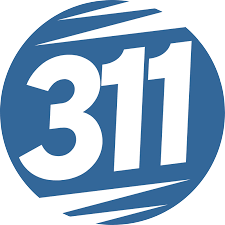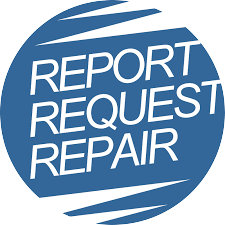In my five and half years as Mayor, working to solve the problem of violent crime has been the hardest and most challenging obstacle I’ve faced. Each time I hear of another person shot and killed it makes me angry at the shooter and breaks my heart for the friends and families of the victim. I have spoken with many of those family members, and I want you to know that I feel a personal responsibility to help stop this violence.
This struggle with violent crime is not a new issue for our city, and it’s not isolated just to Memphis.
We had made progress. From 2017 through 2019, overall crime and violent crime had been reduced each year. Since the pandemic, however, almost every city across the country has seen an increase in aggravated assaults and murders. While positive interactions like schools, churches, sports, community centers and mentoring programs were closed or greatly limited by the pandemic, negative influences like gangs continued to operate.
I want you to know we do not accept this. We will not stand for this, and we’re not just sitting idly by and hoping for change. We are actively working every single day to provide short and long-term solutions to this problem.
We recently funded the Group Violence Intervention Program (GVIP). This program brings all the necessary groups together to fight crime using the evidence-based practices of intervention and focused deterrence work. It’s complemented by non-police agencies who will perform intense daily violence interruption, intervention, prevention and outreach to the hundreds of individuals we know who are committing most of the crimes and the most at-risk youth.
Going hand-in-hand with GVIP is our overarching public safety plan (and, I’ve talked about this many times before).
My parts of the plan can be summarized in five main points:
- Rebuilding MPD. Since we’ve taken office, and in partnership with the City Council, we’ve increased funding for the Memphis Police Department and improved the pay for officers, such as a two percent pay raise and a nine percent bonus in the current budget, and improved benefits and promotions for officers to better recruit and retain them. An additional 48 recruits graduated from the academy just last night.
- Positively affecting more young people. The true long-term solution to crime is young people picking the right path instead of the wrong one. Young people need something productive to do when they’re not in school. Prior to the pandemic, we had greatly increased those activities, and this summer we have been reinstituting these programs. We increased by 100 percent the number of youth summer jobs compared to when we took office, and we worked with the private sector to create even more. Youth library programming and parks youth athletics participation had more than doubled, and more youth are using our community centers. And, while it is certainly a long-term investment, we funded universal, needs-based Pre-K for the first time in City history.
- Reducing recidivism. We have expanded programs that work to connect local employers with individuals who have paid their debt to society and are leaving prison. We raised private funds to pay for the expungement fees for hundreds of non-violent felons and have lobbied to have those fees reduced. In addition, we have second chance programs with the goal of finding jobs for these men and women. You may have seen the recent Kroger commercial highlighting our partnership with them. It is vitally important that ex-felons have the opportunity to become productive members of society, or else, as statistics show, they are more likely to commit crimes again
- Increasing economic opportunity. At City Hall, we have worked hard to create an environment in our city to enable the private sector to invest more and create jobs, and we’ve worked to overhaul how our community attracts new jobs. Data shows that pre-pandemic 20,000 more Memphians were working at the beginning of 2020 than when I became mayor in 2016, and we are working hard to recapture that momentum.
- Punishing violent offenders. While there’s no question that we should explore alternatives to prison for non-violent felons, there’s also no question that we should prosecute violent criminals to the fullest extent of the law. We have worked with the state to strengthen penalties for gun crimes and domestic violence, as well as strengthened our partnership with the U.S. Attorney to increase prosecutions of violent gun crimes in the tougher federal system.
Too often there is a revolving door in prison for violent criminals. We have worked to remedy that, but there is still more to do. We need truth-in-sentencing for violent crimes, meaning if a violent criminal is sentenced to six years, he or she serves six years and not two.
But, we must do more to fix our broken criminal justice system.
I want to give you a heartbreaking, recent example of why this is so important.
Kelby Shorty—he was seven years old, and he was taken from his mother when he was caught in the crossfire of a retaliatory act this July 4th while he was watching fireworks with friends in the driveway.
The 19-year-old suspect in this case had killed a teenager in December 2019. Just 19 months ago. He was out of jail and not in custody in just a year and half after he murdered someone. This is unacceptable. We will work with our public and private partners to fix this system.
Unfortunately, this is just one example of a story that occurs far too often in our community. Another example of the revolving door without any intervention or rehabilitation is:
Last year, a 16-year-old with a gun was shot while trying to car jack a person’s car. Now, in the several months prior to that attempted armed robbery, he had been caught breaking the law four other times.
First, at 3am, he led police on a chase in a stolen car that eventually crashed (he was caught by the police and released by the court)
Second, he and some friends broke into a store and stole guns (he was caught by the police and released by the court)
Third, he and some friends tried to steal cars from a dealership (he was caught by police and released by the court)
And fourth, he and a friend stole a car from a gas station (he was caught by police and released by the court)
All within a matter of months. No punishment. No rehabilitation.
As one woman said on the news earlier this week, “Everything is so accessible, it’s so easy to get gun” and she continued “our judicial system is not set up for criminals to think they’re going to be punished for what they do.”
Many people ask what they can do to help? Here are just a few examples:
- Parents and families have the biggest impact on a young person. Please know where your children are and who they are hanging out with. If you need help as a parent, please call 211 and we can direct you to a helpful agency. For everyone else, hundreds of children need mentors. Programs such as Mentor Memphis Grizzlies offer a great opportunity to make a positive, lasting impact on a teenager.
- Guns. While there is a deep divide in our nation and community over whether government can or should limit access to certain firearms, the fact is too many young people have easy access to too many weapons. 60 percent of the guns seized by MPD have been stolen from lawful gun owners. Please, secure your guns!
- Currently, only about 25% of Memphis 3rd graders in public schools read at 3rd grade level. And a child’s future success is often linked with early literacy. You can help. Programs like Arise2Read and Team Read are drastically improving test scores. So, please volunteer like my wife has.
Over the coming weeks, expect more updates on what we’re doing to keep Memphians safe. Together we can make a difference and improve the city we all love.
Thank you for your time today, and enjoy your weekend.
-Mayor Jim Strickland

